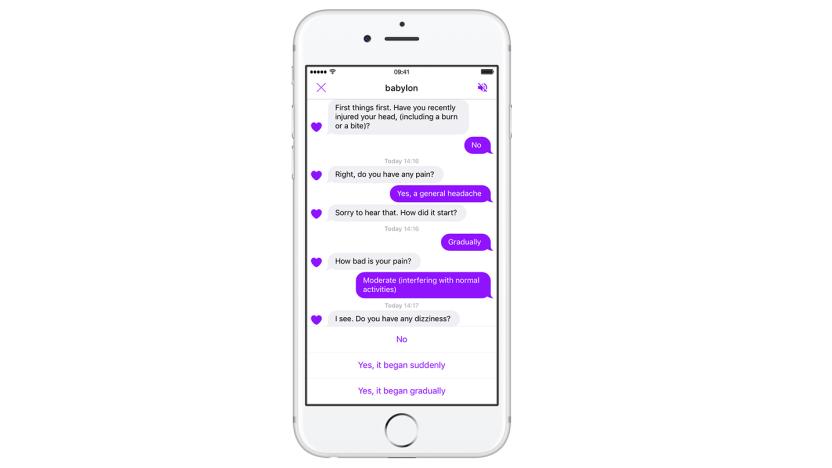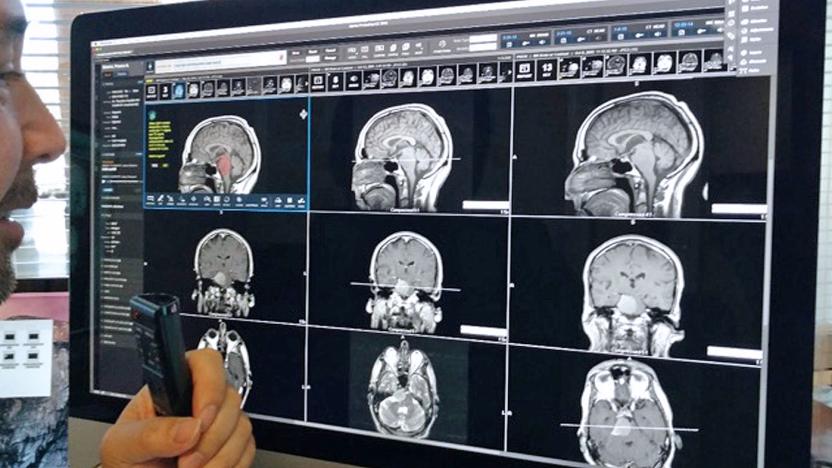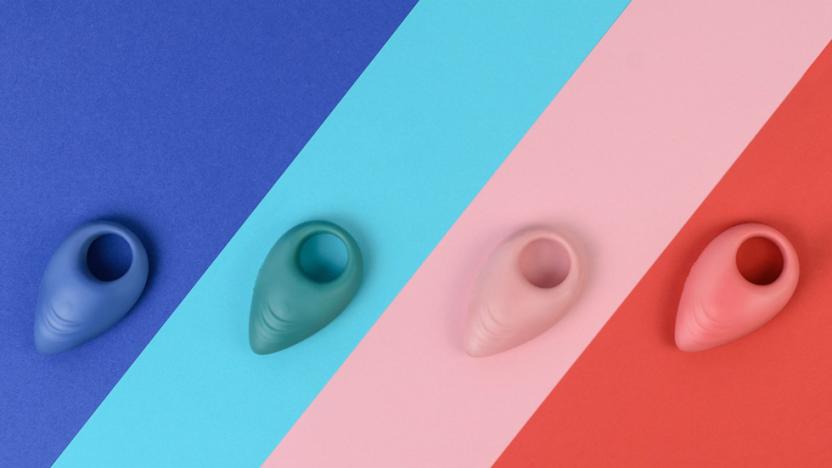healthcare
Latest

NHS to use Uber and startup Cera for at-home patient care
Healthcare startup Cera is teaming up with Uber to deliver patient care on the NHS' behalf. The service, launched in November, matches "hundreds" of carers in the UK with the people who need them most. Today, the company is announcing a partnership with the Barts Health NHS Trust -- which runs Mile End Hospital, Newham University Hospital and others -- so that doctors can effectively prescribe the platform and help their patients receive timely care at home. The hope is that such a service will improve patient care while freeing up hospital beds in London.

UK health service to trial chatbot that gives medical advice
The UK's National Health Service (NHS) is to begin trialing a chatbot app for dispensing medical advice, with the aim of reducing the burden on its 111 non-emergency helpline. The 111 service went live in 2013, and serves as the first port of call for urgent advice in cases where it's likely overkill to scream for an ambulance right away -- if you've misread a prescription and taken more pills than you should've, for example. The AI-powered app could become another alternative, questioning users about their medical matter and symptoms before suggesting the best course of action.

In IBM's future, Watson will be your doctor
IBM is working on a way to make its Watson supercomputer a far more effective medical tool for flesh-and-blood doctors. The company wants to use the platform to analyze medical imaging data to learn what a healthy set of insides looks like. It should then be able to identify when things have gone awry in scan images to direct doctors toward areas of concern. If this data is merged with each patient's medical records, it could mean faster and more effective treatment for serious conditions.

AI will shape health care plans for US veterans
American veterans needing health care are about to get help from an unusual source: artificial intelligence. The Department of Veterans Affairs and Flow Health have forged a 5-year alliance that will see the two build a massive medical knowledge graph (based on the records of 22 million veterans) that uses deep learning to customize health plans for vets. The system aims to identify the common genetic factors that make people vulnerable to given diseases and not only improve diagnoses, but recommend treatments on a case-by-case basis.

NHS to use Google DeepMind AI app to help treat patients
Google and the Royal Free London NHS Foundation Trust have announced a fresh five-year collaboration today, which will see the former's DeepMind AI used to improve patient care across the trust's various hospital sites. The partnership will focus on Streams, a mobile app the pair have been working on since late last year that's been approved as a medical device by the UK's health regulator. DeepMind will analyse blood test results as they come in and flag when patients might be at risk of acute kidney injury, proactively alerting carers through the Streams app.

Drones are delivering blood to hospitals in Rwanda
In Rwanda, transporting critical medicine and blood can be difficult if the patient is in a remote location. Heavy downpours can wash out the roads, and local hospitals are often too small to stock everything their doctors might need. Now, the Rwandan government is side-stepping the problem with a drone delivery program. In the western half of the country, 21 transfusion clinics can request batches of blood via text. The order will be picked up by Zipline, a California-based robotics firm, at its "nest" base in Muhanga. A small drone will then be deployed and, upon arrival, swoop down low to drop the package off at a designated "mailbox" area.

Hacker claims to have 655,000 health care records for sale
Hackers are getting all too creative in their bids to hold health care data for ransom. An intruder is selling records for 655,000 patients from three US health care organizations (in Atlanta, the central US and Farmington, Missouri) on the Dark Web as part of a ransom attempt. Details of what happened aren't clear, but the hacker claims to have exploited flaws in the Remote Desktop Protocol to perpetrate the heists. Also, this person maintains to DeepDotWeb that the companies had a chance to "make it go away" for a "small fee," but didn't -- the sale is upping the ante.

AI 'doctors' will diagnose your X-rays
An Israeli medical imaging company has signed a deal with a Utah-based healthcare provider that could change the way we diagnose certain conditions. Zebra Medical Imaging is teaming up with Intermountain to work on a neural network that will compare fresh X-rays with the "millions" stored in its own database. The eventual aim of the project is to offer up suggestions to radiographers and other medical professionals and eliminate costly misdiagnoses.

Watching surgery in VR isn't for the faint of heart
Next month, my mom will retire as a theater nurse. For almost 40 years she's been walking into her hospital on a near daily basis, donning a fresh pair of scrubs and helping a surgical team save people's lives. I couldn't be prouder. But truth be told, I know little about her job and what actually happens when someone is wheeled inside the operating theater. In my head, it's just a nightmarish blur of sedatives, scalpels and face masks.

Google bets that smart software will improve health care
Google's DeepMind project has mostly focused on solving high-minded computer intelligence issues. Today, though, it's tackling something far more practical in the short-term: health care. The new DeepMind Health initiative relies on smart mobile apps to deliver medical data to doctors and nurses in time to save lives. The first app, Streams, helps spot acute kidney injuries that would otherwise go unnoticed. There are also plans to integrate technology from a third-party task management app, Hark, to identify patients that are at risk of deteriorating quickly.

Junk technology: Why your penis pedometer is DOA
If all you want for Christmas is a penis pedometer, get ready to be disappointed. NSFW Warning: This story may contain links to and descriptions or images of explicit sexual acts.

Chinese hackers targeted an insurer to learn about US health care
When Anthem revealed a data breach that exposed the details of more than 80 million people, the incident raised a lot of questions: who would conduct such a hack against a health insurance firm? Why? And what happens to the data? Well, investigators finally have some answers... and they're not quite what you'd expect. Reportedly, the culprits were Chinese hackers helping their nation understand how US medical care works. It may be part of a concerted campaign to get ready for 2020, when China plans to offer universal health care. If that's the case, the findings might explain a string of health-related breaches in the past few years.

Healthcare.gov users get privacy controls as enrollment nears
Following an Associated Press report in January, the government-run Healthcare.org website scaled back its sharing of user data with third parties. Now, the site will let users opt out entirely as the next round of enrollment opens November 1st. Thanks to a new "privacy manager" feature, the Obamacare online portal allows folks to ensure details like age, income and ZIP code are kept away from advertisers and out of analytics use. It'll also disconnect from the site's social media tools. The website will also allow users to employ their browser's Do Not Track options to keep pesky advertisers at bay while accessing healthcare info on the site. "The internet is constantly changing, and we have an obligation to keep evolving alongside it," Healthcare.gov CEO Kevin Counihan wrote in a blog post. "We'll keep reevaluating our own privacy notice, the tools we use, and how they intersect with the evolving landscape of privacy on the web." [Image credit: KAREN BLEIER/AFP/Getty Images]

Hospital makerspace lets nurses build their own tools
Makerspaces are great for bringing your gadget ideas to life, but they're not usually much help to nurses who may want to invent (or improvise) tools needed to take care of their patients. That's where the University of Texas' new, permanent MakerHealth Space might just save the day. Nurses and other workers at the school's John Sealy Hospital now have a dedicated area with 3D printers, laser cutters and other equipment that lets them create or modify devices (say, a pill bottle sensor) without leaving work. The facility sterilizes and reviews every product before it's put into service, so you shouldn't have to worry about a risky tool ruining your hospital stay.

BlueCross BlueShield hack may have exposed data for 10 million customers
Another week, another major institution falls victim to hackers. This time, it's New York-based heathcare provider Excellus BlueCross BlueShield: the company says that more than 10 million personal records of its customers were exposed to hackers in an attack it discovered this past August. The company discovered the attack early in the month, but after doing more investigation it turned out that it actually took place way back in December of 2013. The investigation showed that the hackers could have accessed personal information including "name, date of birth, Social Security number, mailing address, telephone number, member identification number, financial account information and [insurance] claims information."

The NHS wants to give wearables to hospital patients
To cut costs and improve patient care, the NHS is looking to technology more than ever before. Under its latest proposals, Britain's healthcare service wants to introduce free wi-fi across all of its hospitals, giving doctors and nurses the ability to use tablets on the wards. The hope is that this will reduce paper waste and speed up administrative tasks, giving staff some extra time to visit their patients. It also opens up the possibility for patients to wear wearables, such as skin sensors. Patients with diabetes, for instance, could then be monitored around the clock to help doctors spot early signs of deterioration.

Data breaches exposed 29 million US health records in 4 years
If there are any doubts left that health care data breaches are a major problem, the medical industry just put them to rest. Researchers have published a study showing that a whopping 29.1 million American health records were compromised between 2010 and 2013. Most of them (58 percent) were exposed through theft, but the rest were revealed through a mix of hacks and carelessness, including workers who gave unauthorized access or didn't properly get rid of info they no longer needed.

These companies think the future of wearables is wellness, not watches
Whisper it, but if the trend at London's Wearable Technology Show is any indication then the future of wearables may not be in fitness. Yesterday, Apple announced a medical research platform in the form of Research kit and less than 24 hours afterward, the dominant theme is not about pleasing marathon runners. "There's a kudos in sport," says Smartlife's Martin Ashby -- one of the exhibitors at the show. "But the future of wearables is in health and wellbeing." It's a bold statement from the CEO of a smart sportswear company, but is it true that companies are looking to ditch fitness fans in favor of hospitals? If you're curious to read what others believe, keep reading.

800,000 people get bad tax info in latest Healthcare.gov snafu
Healthcare.gov just can't catch a break -- it's been targeted by hackers and shared personal information with marketing companies in the past six months, and now it's trying to clean up a mess for the nearly 800,000 people it just sent incorrect tax information to. The Obama administration confirmed the issue earlier this morning, and officials promised on the Healthcare.gov blog to contact affected households via phone call and email over the next few days. Needless to say, don't file your taxes yet if you signed up for health insurance using the site this past year. Better safe than sorry, right?

Healthcare.gov stops passing private details on to advertisers
A few days ago an Associated Press report revealed that the US Government's affordable care portal Healthcare.gov was passing detailed information on to third parties. Now the AP tests reveal those links have been scaled back. Previously, the Eelectronic Freedom Foundation discovered that the site was passing on details like age, pregnancy status, smoking status and more via the URL, which would bypass even protections like enabling Do Not Track in your browser. The data that embedded services like DoubleClick, ChartBeat, Google or Twitter received was apparently anonymous and supposedly barred from use for business interests, but it theoretically could be matched up with other information to identify and target users with ads. The Obama Administration responded to the initial complaints by saying the data was intended for use to improve the website itself, but so far hasn't commented on the changes. For concerned users, the EFF recommends using a tool like its Privacy Badger to block websites from sending your personal information on to third parties.








